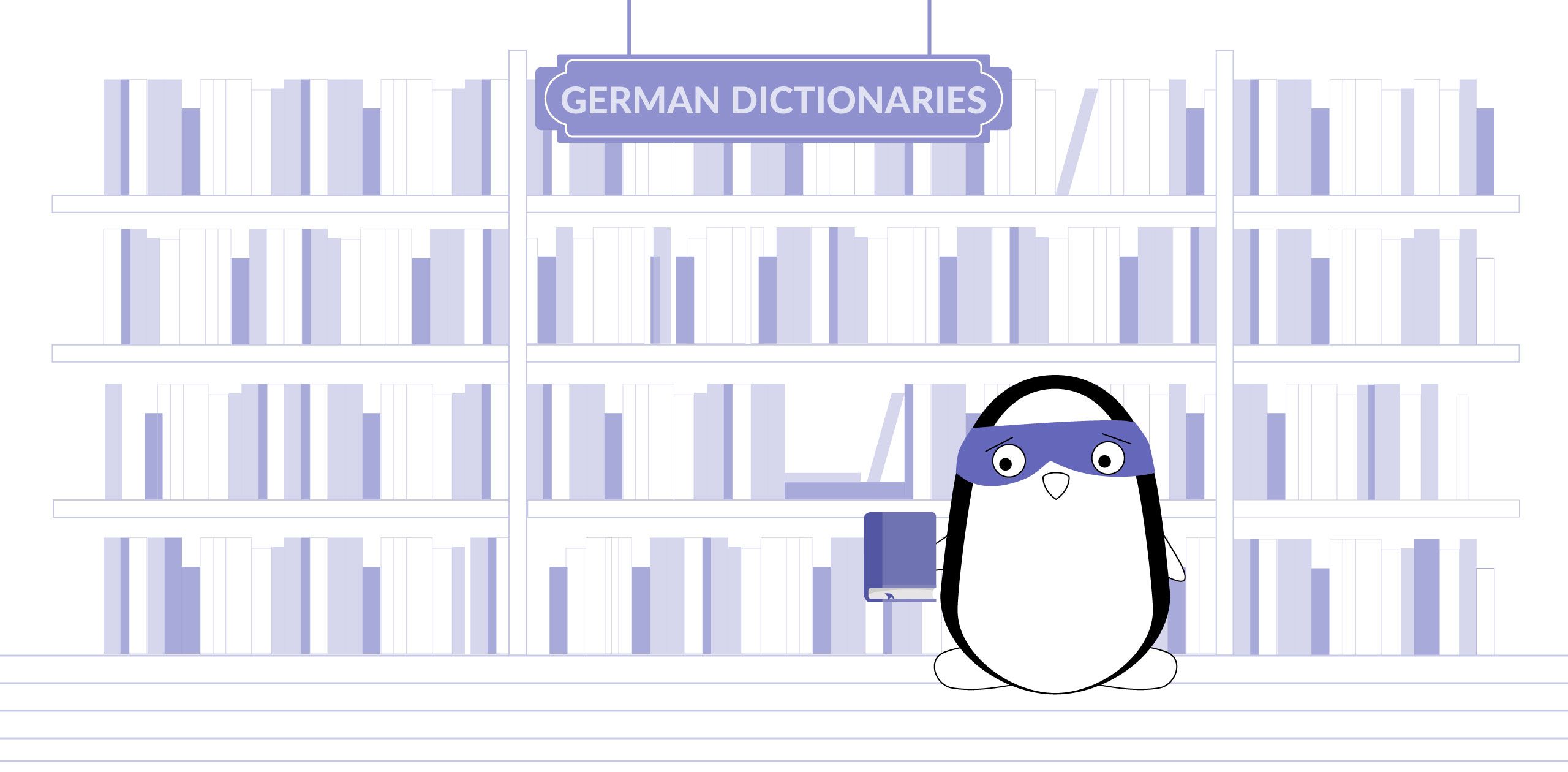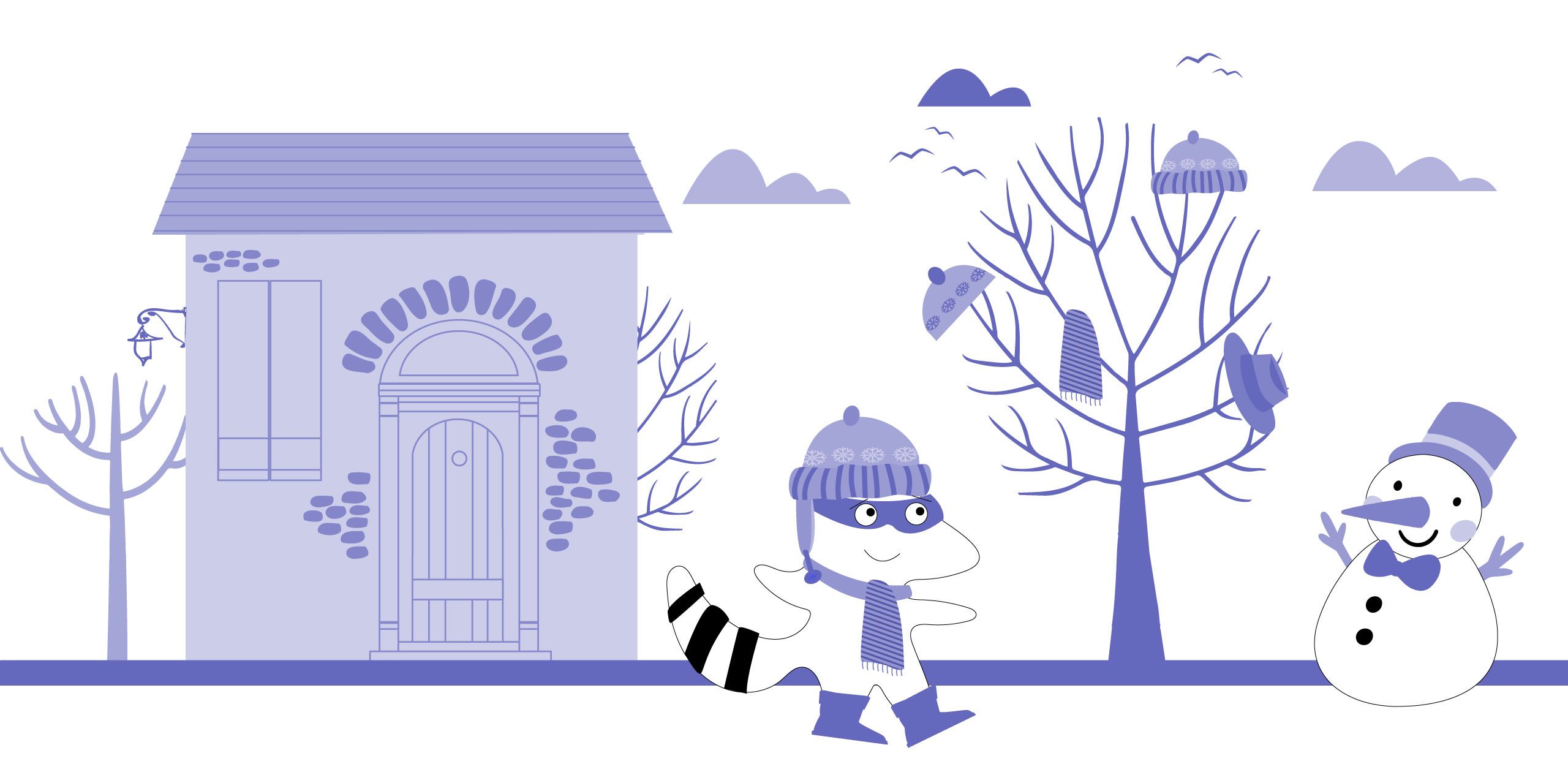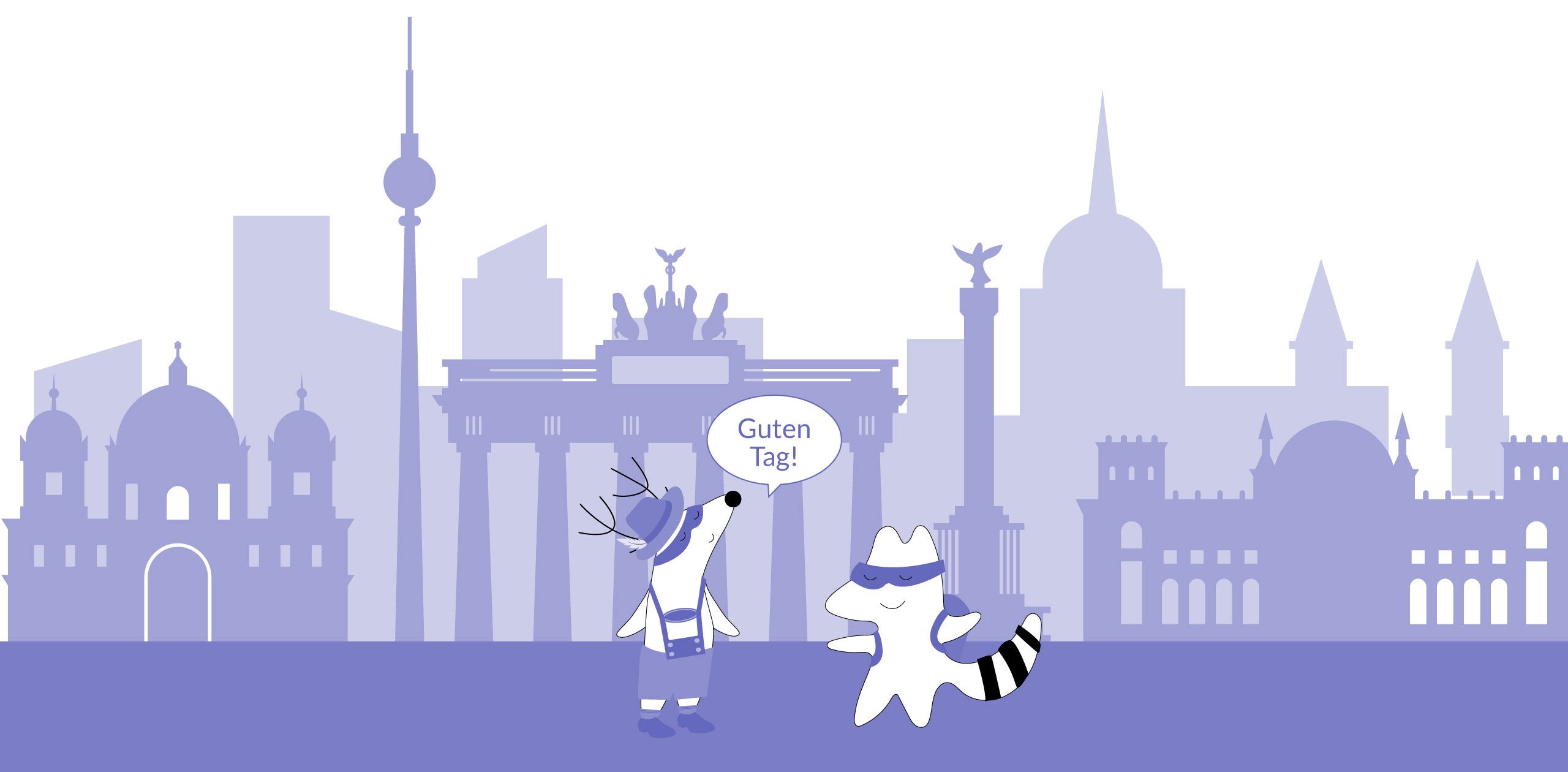
If you're headed to Germany (or any other German-speaking country) and want to be able to converse with the locals, learning a few basic phrases is essential. Even if you're just traveling through and plan on shortly stopping in Germany, it can still be helpful to know some key phrases in case you need to talk with a German speaker while abroad.
Moreover, if you are learning German, knowing the basic conversational phrases will allow you to take the next step on the road to fluency – and make your next conversation with a native German speaker much less stressful. So, what are you waiting for? Read on, and give your vocabulary a boost.
Learn German with Langster
Saying Hello
Saying hello is probably the most important thing you can do when meeting someone for the first time, and luckily, the German language has a few different ways of doing just that. Depending on the formality, context of the situation, and who you are talking to, there are many German words and phrases you can use.
Here are some of them:
German
English
Hi!
Hi!
Hallo
Hello
Hallo zusammen
Hello everyone
Guten Tag
Good morning
Guten Abend
Good evening
Get to a Higher Level of the Language
But of course, these are not all. German speakers often use different phrases-substitutes or local variations – just like English speakers would say “How you doin'?”, “Cheers,” or ‘Howdy.”
German
English
Moin Moin
Hello (Northern Germany)
Grüß Gott
Hello (Southern Germany)
Grüß dich
Hello (Southern Germany, Switzerland, and Austria)
Servus
Hello (Southern Germany, Switzerland, and Austria)
Wie geht es dir?
How are you?
If you want to learn more about these phrases as well as how to behave when greeting someone in Germany, check out this article on our blog.
Introducing Yourself
In order to properly introduce yourself in German, you'll need more than just the word "Ich." There are a few different ways to say "I am," depending on the formality and context of the situation, as well as your gender.
For example, if you're a male and want to say "I am a student," you would say "Ich bin Schüler." If you're a female and want to say the same thing, you would say "Ich bin eine Schülerin."
Here are the three common German phrases used to introduce yourself:
German
English
Ich heiße Martin.
My name is Martin (the most common way).
Mein Name ist Karl.
My name is Karl.
Ich bin Rosa.
I am Rose.
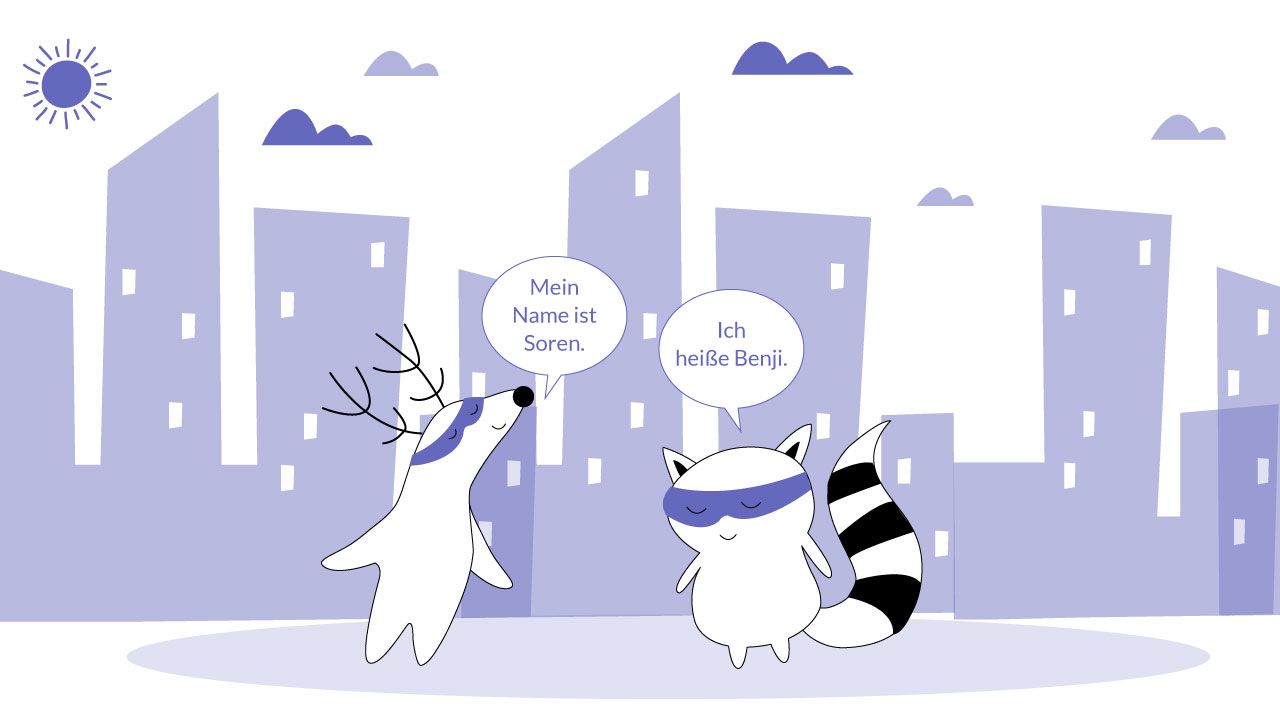
Asking “What Is Your Name?” in German
But, of course, to answer the question “What is your name?” in German as well as to ask it, you need to know some different phrases. Here are the most common ways to ask for someone’s name:
German
English
Wie heißen Sie?
What is your name? (formal)
Wie heißt du?
What’s your name? (informal)
Wie ist dein Name?
What is your name? (formal, can be used on a guest list, for example)
Wie heißt ihr?
What are your names? (when talking to a group)
Wie ist Ihr Name?
What are your names? (when talking to a group, a bit formal)
Wer sind Sie?
Who are you? (formal)
Wer bist du?
Who are you? (informal)
Wer seid ihr?
Who are you? (formal, when talking to a group)
Or you can simply add “und du?” or “und Sie?” after saying what your name is in German:
German
English
Ich bin Erik, und du?
I’m Eric, and you?
Starting a Conversation
If you're looking to start a conversation in German, you'll need more than knowing how to introduce yourself and greet the other person. Just like in English, there are some common phrases used before getting to the point of the talk.
German
English
Nett, Sie kennen zu lernen.
Nice to meet you. (formal)
Freut mich!
Nice to meet you! (informal)
Es freut mich, dich kennenzulernen.
It’s a pleasure to meet you.
Wie geht’s?
How’s it going?
Alles gut?
Everything fine?
Gut, danke
Fine, thank you
Woher kommst du?
Where are you from? (informal)
Woher kommen Sie?
Where are you from? (formal)
Ich komme aus den Staaten.
I’m from the States.
Wie alt bist du?
How old are you? (informal)
Ich bin 25.
I’m 25.
Jahre alt 30.
I’m 30.
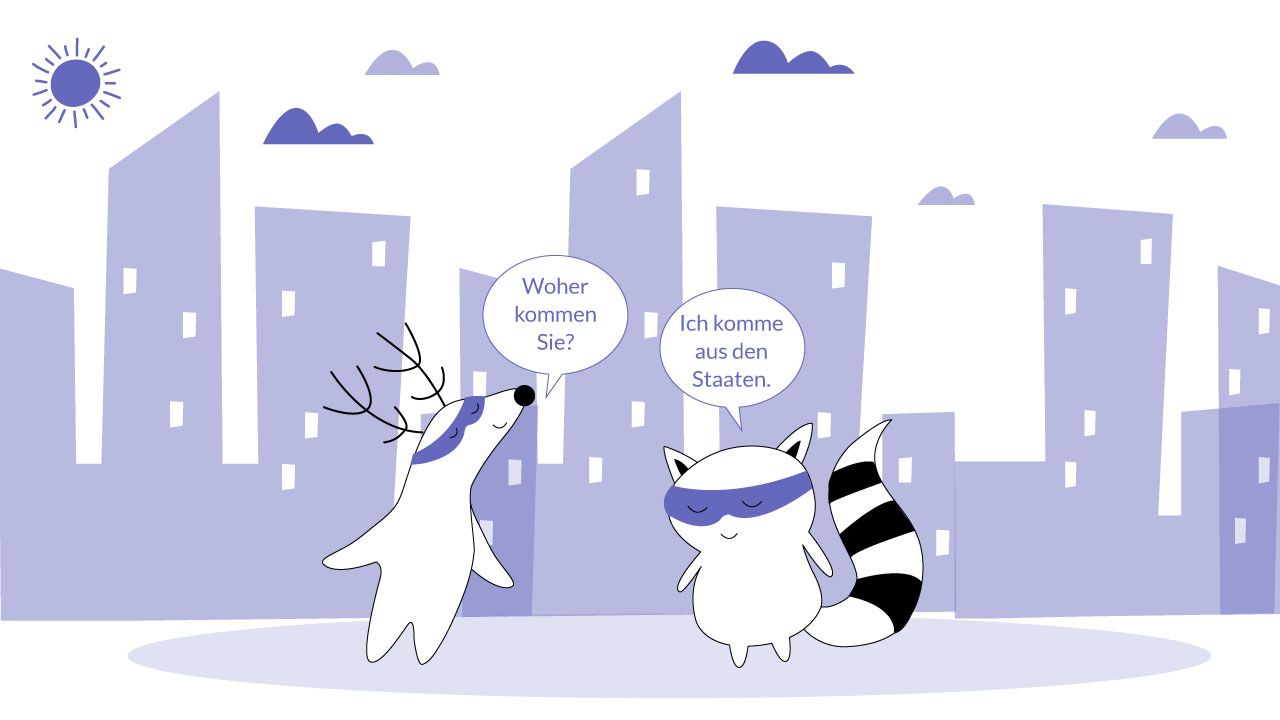
Asking for Help
If you're ever lost or need assistance, don't be afraid to ask a local German speaker for help – they'll more than likely be happy to assist. Just make sure to use the right words:
German
English
Entschuldigung.
Excuse me.
Können Sie mir helfen?
Can you help me?
Ich brauche Ihre Hilfe.
I need your help.
Bitte helfen Sie mir.
Please help me.
Ich habe mich verlaufen.
I’m lost.
Sprechen Sie Englisch?
Do you speak English?
Es tut mir leid, ich verstehe das nicht.
Sorry, I don’t understand.
Wiederholen Sie bitte.
Please repeat.
Vielen Dank.
Thank you very much.
Then, there are several phrases you might hear in response:
German
English
Einen Moment, bitte.
One moment, please.
Wie kann ich dir helfen?
How can I help you? (informal)
Wie kann ich Ihnen helfen?
How can I help you? (formal)
Keine sorge.
Don't worry.
Sprechen Sie Deutsch?
Do you speak German?
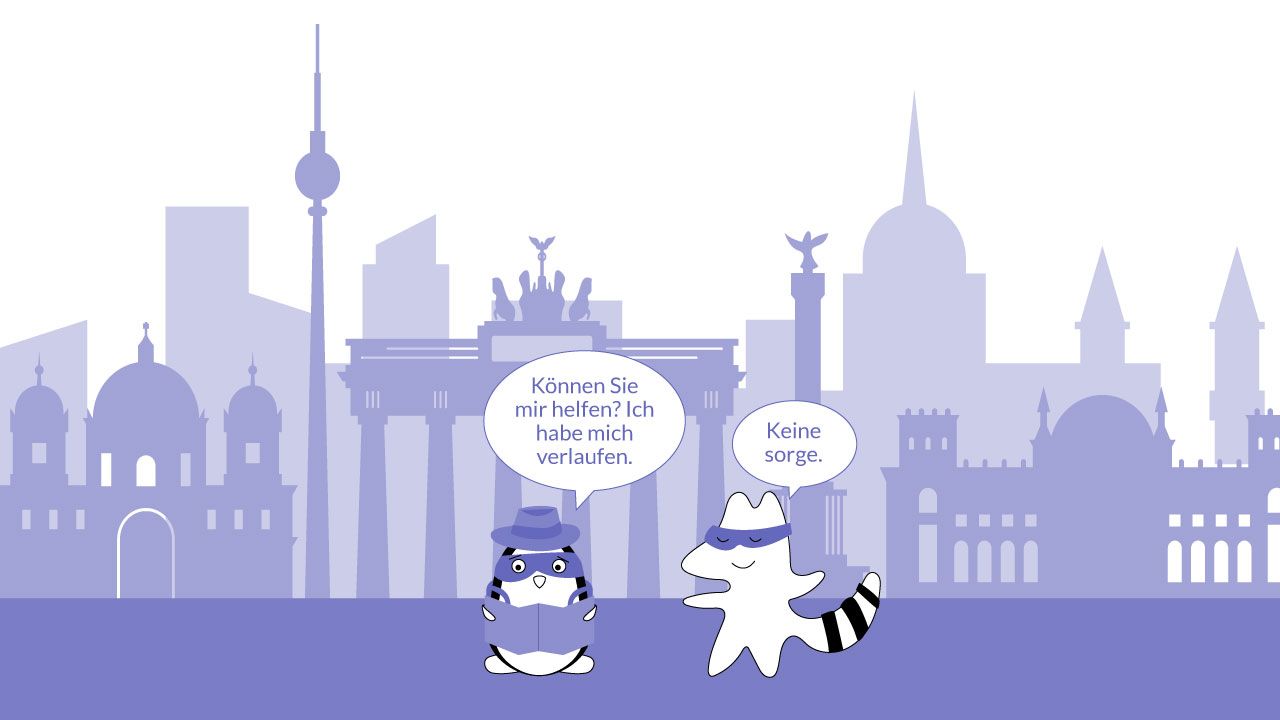
When asking native speakers for help, don’t stress too much. Yes, German pronunciation can be tricky, and it can be hard to understand what the other person is saying. Nevertheless, Germans understand how challenging their language is to foreigners, so don’t be afraid to ask them to repeat something several times.
And, if you suddenly use an English word or two, don’t worry – many German people know English, and even if they don’t understand you, they will do everything they can to clearly understand what you want.
Getting Around
If you're looking to travel to a German-speaking country, or are just visiting Germany for the first time, it's also important to know some basic words and phrases for getting around. Google maps may be with you most of the time, but the internet connection might stop working – and sometimes, you’ll just need to ask people for help.
German
English
Wo finde ich den Bahnhof?
Where do I find the train station?
Wo ist die Toilette?
Where is the bathroom?
Wie komme ich zu…?
How can I get to…?
Gibt es ein Krankenhaus in der Nähe?
Is there a hospital nearby?
Wann fährt der nächste Bus?
When is the next bus?
Of course, these are just the basics – but you can use them just like mathematical formulas, changing the names of the places you need to get to or learn about. With these five phrases, you shouldn’t get lost.
Saying Goodbye
And, finally, there’s a correct way to finish a conversation with a native German speaker as well. Here are some helpful phrases:
German
English
Auf Wiedersehen
Goodbye
Tschüss, bis zum nächsten Mal.
Goodbye, see you next time.
Bis bald!
See you soon!
Wir sehen uns!
See you!
Gute Nacht
Good night
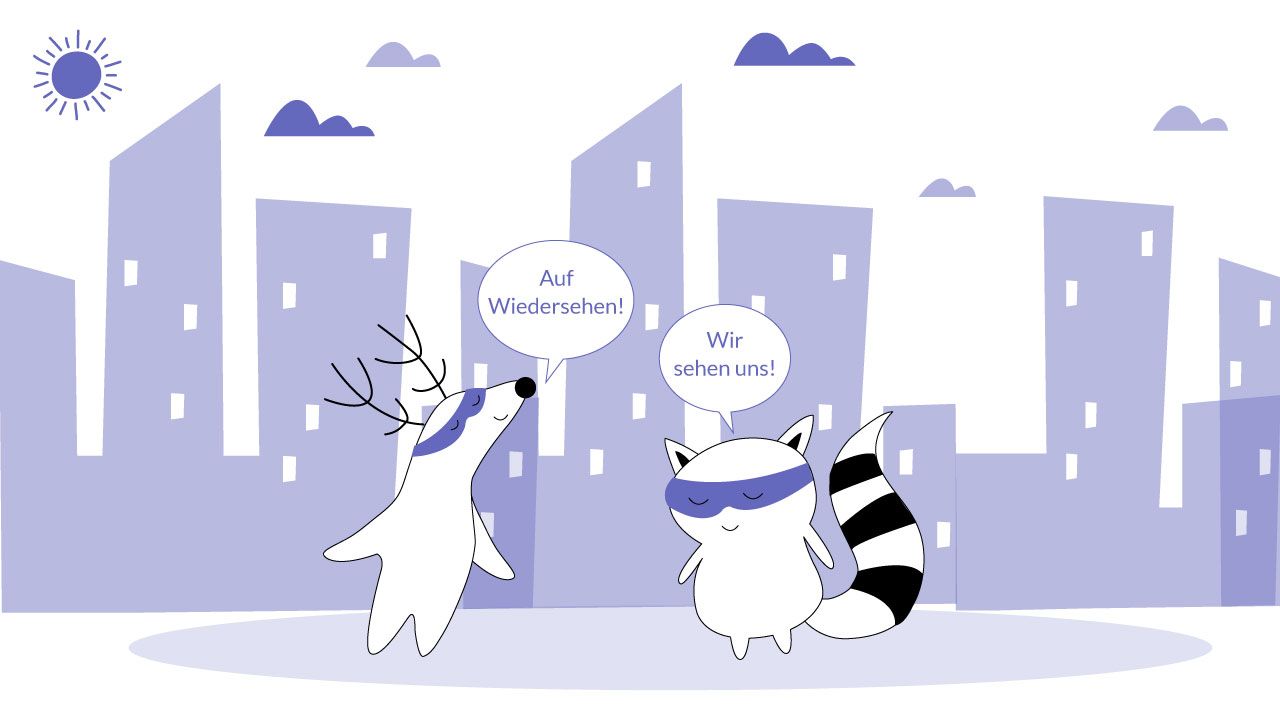
Remember About Politeness
When interacting with Germans, it's important to remember to stay polite. Politeness is a natural trait for Germans, and they will appreciate it if you show them courtesy.
Some ways to be polite when talking to Germans include:
- using formal language (“Sie” instead of “du”),
- apologizing if you made a mistake,
- making sure to say “please” and “thank you.”
It's also important to avoid speaking too loudly or too softly, as well as using slang words or swear words. These simple tips will allow you to make a great first impression and show the person you're talking to that you respect them.
This Is Just a Start
Learning some basic German phrases will go a long way in making any short conversation with a German speaker less stressful. Knowing how to say "hello," "thank you," and "goodbye" in German, as well as a few other essential phrases, can make all the difference when traveling or trying to get around in a German-speaking country.
Just remember that politeness is key when interacting with Germans - so use formal language and avoid speaking too loudly or softly. With just these basics, you'll be able to converse comfortably with native speakers and make a great first impression.
However, this is just a start. If you want to dive deeper into the German language, check out our other blog posts or download our app – and see how fun and easy the road to fluency can be.








